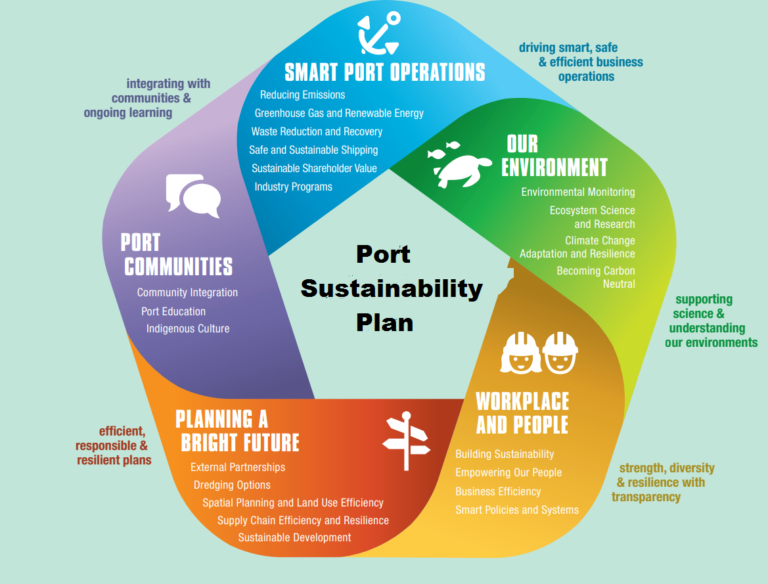Each Work Package contains actions with specific and detailed descriptions, deliverables and output results, as well as indicators and expected results.
WP7: Energy Self-Sufficiency action plan
for Ports and development of Decision Support Tools
Start date
01/02/2021
End date
31/03/2022
Duration
14 months
Partner’s involvement
- Partner responsible: University of Plymouth
- Universidad do Porto
- Universidad de Santiago de Compostela
- Ecole D’Ingenieurs En Génie Des Systèmes Industriels
- Universidad de Oviedo
- University of Plymouth
- Instituto de Ciência e Innovaçao en Engenharia Mecânica e Engenharia Industrial
- Fundación Instituto de Hidráulica Ambiental de Cantabria
- Administraçao dos Portos do Douro, Leixoes e Viaña do Castelo, SA
- Autoridad Portuaria de Vigo
- Organismo Público Puertos del Estado
- INNOSEA
- University College Cork, National University of Ireland, Cork
- Agência para a Energia
- Shannon Foynes Port Company
- WindEurope
About this Work Package
WP7 is the final work package of the PORTOS project. This aims to develop the energy self-sufficiency action plan and decision support tools for the ports by building upon the results from previous work packages. Based on the results of WP6 – “the technical viability studies of different marine renewable energies integrated at case-study ports”- the following are identified for each target port: the renewable resources available for harvesting; locations for their exploitation in and around the target ports; the most appropriate technologies to be used for harvesting green energy. Furthermore, the key technical requirements for implementing these technologies are identified. Subsequently, feasibility studies will be carried out, which include cost modelling of the selected technologies, civil engineering works, and potential socio-economic and environmental impacts. On this basis, roadmaps for transition towards energy mix diversification and achieving self-sufficiency will be defined for each target port.
All these outputs are used to develop a Decision Support System (DSS) tool to:
- Forecast the renewable energy at ports
- Support the selection of the conversion technologies and their best location
- Re-design the harvesting setup considering the port energetic needs
- Provide a reliable techno economic analysis
- Allow demand side optimisation (DSO) of energy consumption.
MaREI is responsible for assembling the outputs produced during WP5-6 to create the DSS, which will be validated by INNOSEA, as a risk-mitigation measure that ensures the quality of the resulting tool. Finally, guidelines for energy self-sufficiency in AA ports are proposed that could be extended to other ports, to directly contribute to both the reduction of carbon footprint and energy savings.
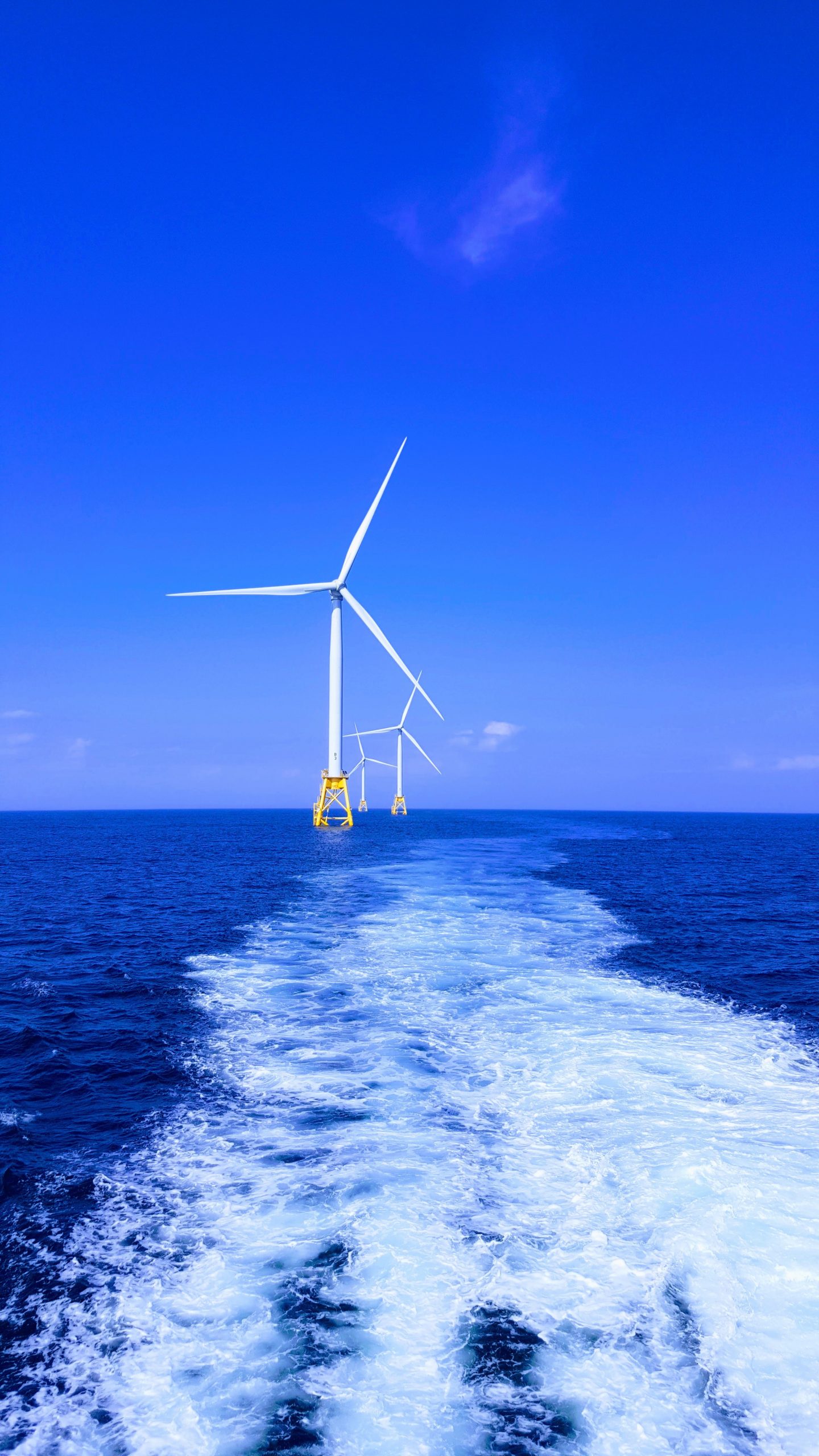
Actions in Work Package 7
Action 1: Renewable resources to harvest and required technologies
Start date: 02/2021
End date: 04/2021
The main objective of this action is to propose the new and diversified energy mix that combines the renewable resources available at the port with the technologies developed and also takes the use of energy storage within the port into the account. This action will be carried out in the following sequences.
• Based on the results of WP6, the harvestable RE resources (e.g., wave, wind, tidal, river in-stream) at each port are identified using the most suitable technologies and layouts.
• The most appropriate energy mix is defined based upon the local conditions at each case-study port with its associated energy consumption profile.
• The combination of technologies will be specified for optimising the exploitation of the available REs.
Coordination: UoP; Support: INEGI, UPORTO, IHCantabria, USC, collaboration of ports.
Action 2: Adaptation of infrastructures in the case study ports
Start date: 04/2021
End date: 07/2021
This action will focus on the integration of the foreseen renewable energy capacity within the existing infrastructure of the case study ports. The work will be divided into different main actions:
• Assessment of the key technical requirements to implement the selected energy harvesting technologies at the target ports.
• Identification of adaptation interventions: upgrade of existing structures or construction of new ones, modifications to electric grid and other systems.
• Preliminary design of civil engineering works. Quantification of interventions.
Coordination: INNOSEA; Support: UPORTO and ports.

Action 3: Environmental impact, Feasibly studies and Business Plan
Start date: 02/2021
End date: 09/2021
This action evaluates the technical feasibility and economic viability of the considered marine technology through the techno-economical resource assessment. Based on the cost estimates, the environmental impact and the energy production, the cost of energy is calculated. This leads to the development of suitable feasibility studies and business plans. This action will be carried out through the following measures.
• Feasibility studies for the implementation of renewable energies in the target ports include an environmental impact analysis and a global economic assessment of the alternatives: construction/adaptation costs; maintenance and operation costs (estimation); power production; taxes; and interest rates.
• Usual economical indexes quantified (NVP, CAPEX, OPEX, LCOE) for the selected technologies to be deployed and a business plan defined.
Coordination: UoP; Collaboration of ports.
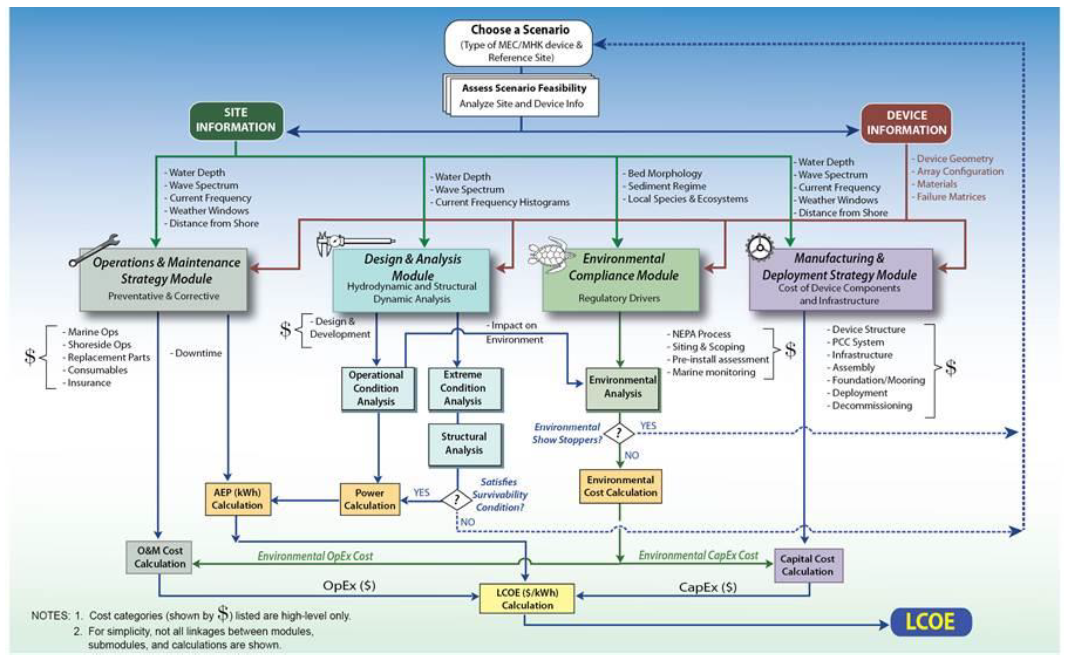
Action 4: Development of Decision Support System
Start date: 02/2021
End date: 09/2021
This action develops a user-friendly decision support system, tested on the target ports to analyse energy consumption patterns in the ports and to define the best conversion technologies and locations for their implementation, in order to aim for energy self-sufficiency. This action will be carried out in the following sequence.
• Development of the decision support system to improve the selection of the best technologies for harvesting energy and the best sites for their installation whilst considering the energy needs of the port.
• Predesign of the energy harvesting setup and a thorough economic analysis to improve investment decisions and investment prioritization.
• The system will be tested by INNOSEA at the three case study ports before being validated.
Coordination: MAREI.
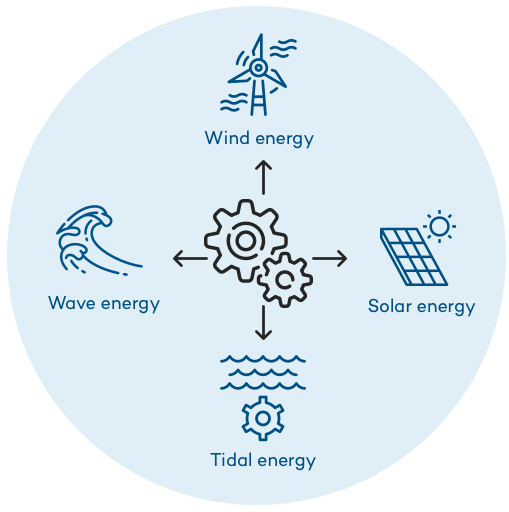
Action 5: Roadmap towards energy mix diversification and possibly self-sufficiency
This action will focus on the preparation of sound and operational roadmaps for the development of new renewable energy capacity within the existing port infrastructure. The work will be divided into different main actions:
• Elaboration of the roadmap towards energy mix diversification and self-sufficiency of the three case study ports.
• Consideration of scenarios for: future development of infrastructures and investment in renewables; identification of priorities and definition of strategic objectives and action plan;
• Identification of synergies with current or future projects; assessment of funding opportunities. Definition of appropriate monitoring programs.
Coordination: INNOSEA, other partners involved.
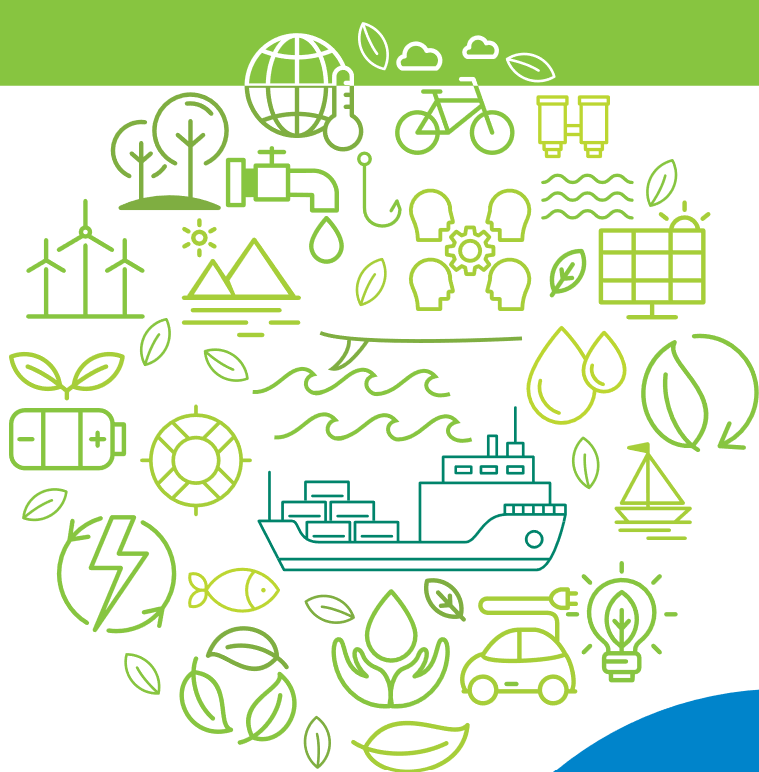
Action 6: Guidelines to energy self-sufficiency and sustainability at sea ports
This action develops a set of guidelines that presents ideas and proposes solutions to help AA and other ports reaching energy self-sufficiency and to change their image, transforming themselves into Blue and Sustainable Ports. This action will be carried out through the following measures.
• Knowledge acquired during the PORTOS project implementation is gathered and summarized in the form of guidelines (standards) and good practices whose application could lead to energy self-sufficiency in AA ports.
• These guidelines should also be generalizable to other ports in Europe and worldwide, to directly contribute to both the reduction of the infrastructure carbon footprint and energy savings.
• Contributions of key stakeholders and associated partners will be incorporated.
Coordination: UoP.
